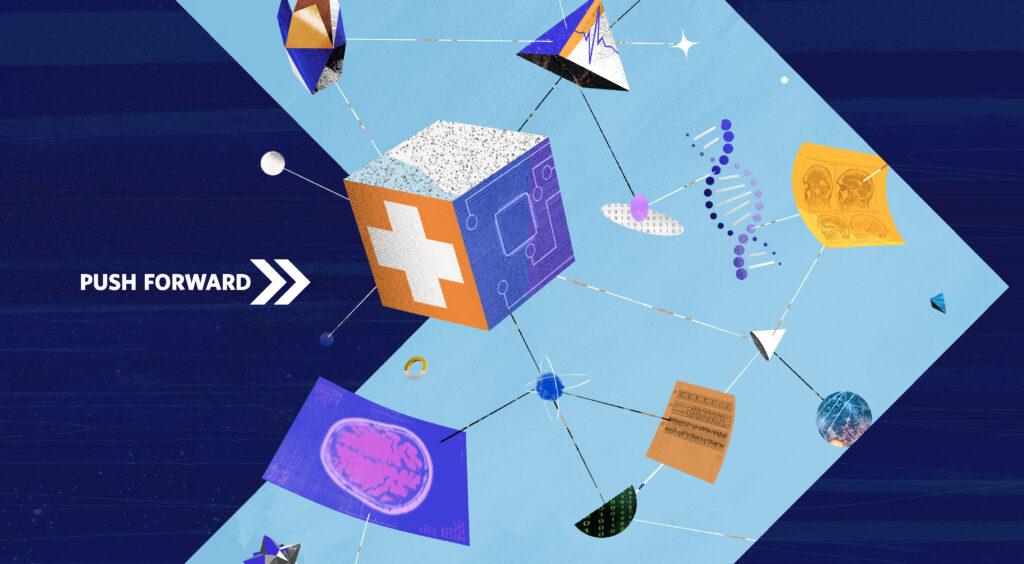Building sustainable food systems
Sustainable Bites: Food and Our Future What can we do to help make our food systems more sustainable? UBC researchers share small steps that can make a big collective impact.
As the climate changes, how can we ensure our food security? Dr. Rickey Yada, Dean of the UBC Faculty of Land and Food Systems, explains how we can build resilience into our food systems through agriculture, new ways of processing and preserving food and by reducing food waste.

Did you know?
- The average North American meal travels 2,400 km from field to plate and contains ingredients from six countries.
- The Centre for Sustainable Food Systems at UBC Farm is working towards a more sustainable, food-secure future.
Why is growing food locally so important to our food security?
A sustainable, secure food system is one that allows us to grow food in our local area in a cost-effective manner and supply our local communities with healthy food choices, says Dr. Yada.
“We’ve gotten so used to a global food supply, but COVID-19 really highlighted the importance of being able to supply a secure and sustainable food system locally,” says Dr. Yada. If supply chains are disrupted, growing food locally can help provide healthy food choices in our communities.
The effects of climate change, such as heat waves and droughts, are also challenging global food production in places like California. Dr. Yada notes that BC will also need to adapt as warmer temperatures affect our local food production.
“Some of the commodities that we’ve traditionally grown in the past aren’t amenable to increases in temperature,” he says. “But this has stimulated some innovative research around varieties of fruits and vegetables that can now be grown in British Columbia and Canada.”
For example, in 2021, we saw sun damage to BC cherries and berries due to scorching weather. The increasingly warmer weather could be an opportunity to support the growth of crops such as corn in BC.
What are two things individuals can do to help ensure local food security?
Food waste happens throughout the consumer journey, but “a lot of it happens at home.” Dr. Yada encourages people to learn more about how to cut food waste at home.
We can also increase our own food literacy and that in our communities. The Centre for Sustainable Food Systems at UBC Farm offers public dialogues on the future of food, as well as children’s programs. “We work very closely with some of the schools in the Vancouver area to bring children out to the UBC farm to talk about ‘where does your food come from?’” says Dr. Yada. “Children actually get the experience of seeing someone plant a seed, watch that seed develop into a plant and then produce a fruit.”

How is artificial intelligence helping us to re-imagine agriculture?
“Many people still have a very traditional notion of agriculture: rubber boots, pitch forks and tractors,” he says. While there are still boots on the ground, agriculture is now a high-tech industry.
Increasingly, technology is playing a key role in helping agriculture adapt to climate change. “Artificial intelligence in the agri-food sector is really helping to gather data, analyze data, and give growers the ability for predictability, so they can maximize the yield of their commodities.”
UBC researchers are also looking at how artificial intelligence can help make our food safer during food processing.
This article was published on March 8, 2024. Feel free to share the video and republish the text of this article, but please follow our guidelines for attribution and seek any necessary permissions before doing so. Please note that images are not included in this blanket licence.
More stories
- Working with local communities is a vital part of wildfire response

- How vaccines give our immune systems a home advantage

- Is your diet influencing your dreams? What research says about food and nightmares

- Developing AI responsibly to help patients get treatment sooner

- Push forward with UBC: Revolutionizing wildfire preparedness

- Push forward with UBC: Developing AI responsibly in health care
